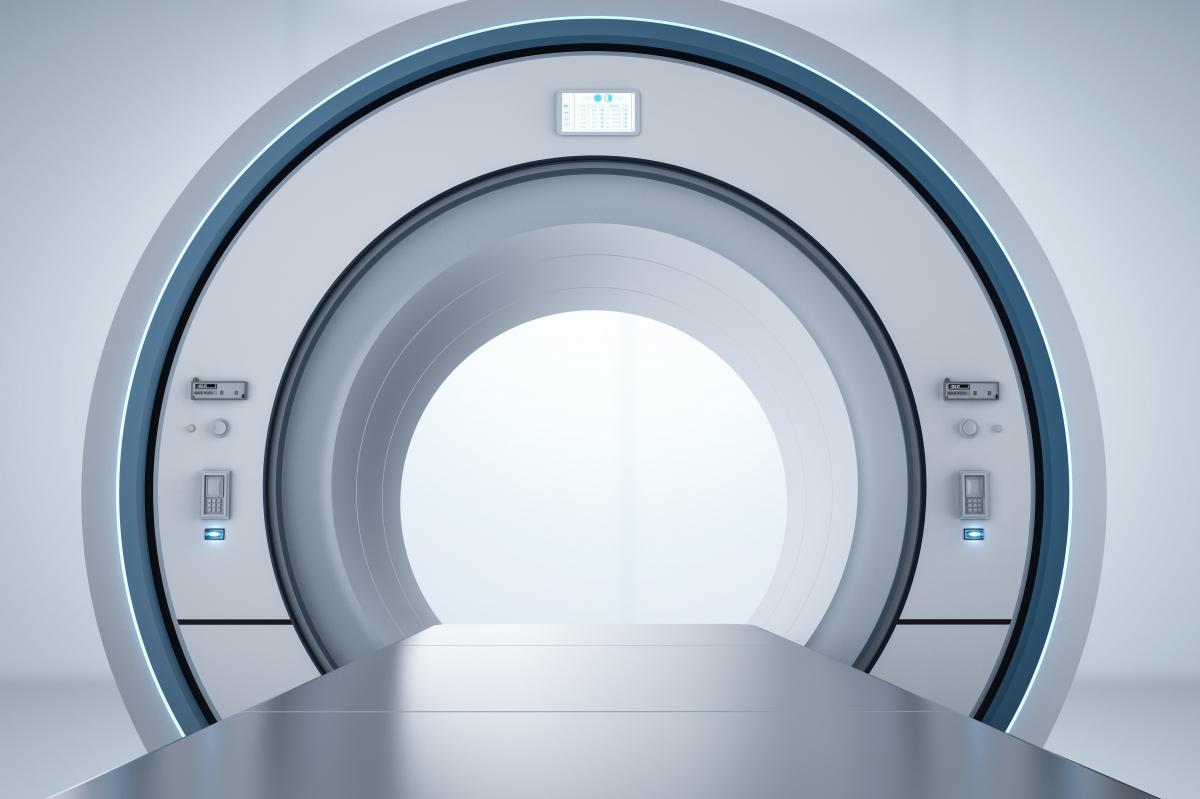Why Is an MRI More Detailed Than X-Ray? What Are the Other Types of Diagnostic Imaging?

May 2022
When a doctor is trying to diagnose a medical condition, they often order imaging tests to see what’s going on inside your body. Diagnostic imaging technology can provide detailed insight into the injuries and damage inside the body, allowing treating physicians to chart a path to treatment and recovery. There are numerous medical conditions diagnostic imaging can detect, such as injuries, tumors or heart disease.
There are several types of diagnostic imaging, and some of the most popular include X-rays, MRI and CT scans. Knowing the differences between each can help you have an informed conversation with your doctor once an imaging exam is recommended.
Differences Between an X-Ray and MRI
An MRI is more detailed than an X-ray as it has the ability to create 3D images instead of 2D images (which is the case for X-rays). X-rays are also used to examine hard-tissue injuries (like bone fractures). They’re less helpful for diagnosing injuries or conditions affecting soft tissues.
The three-dimensional images generated by an MRI allow doctors to examine tissue in depth and from multiple perspectives. Conversely, two-dimensional imaging can only use horizontal and vertical dimensions, limiting the number of ailments it can detect.
What Is an X-Ray?
An X-ray produces 2D images using ionizing radiation. It’s the least advanced form or diagnostic imaging but can be useful for detecting and diagnosing orthopaedic issues.
Areas in the body that are rich in calcium, such as bones and teeth, will respond to the radiation and appear white on X-ray images. Other parts of the body, like muscles and ligaments, won’t display on the image, or will appear too dark for a proper evaluation.
An X-ray examination usually takes only a few minutes to complete. It’s by far the fastest and most affordable form of diagnostic imaging widely used in the medical field.
X-rays can detect several conditions, including:
- Broken and fractured bones
- Tooth cavities
- Arthritis
- Foreign objects in the body
- Pneumonia
- Tumors
- Infections
What Is an MRI?
MRI is short for magnetic resonance imaging. An MRI scanner is a large imaging machine used by medical professionals to examine the soft tissue and organs in your body.
MRI uses magnets and radio waves to create detailed 3D images, allowing doctors to see inside the body without invasive surgery. MRI is free from radiation, thus there is no risk of side effects so long as you don’t have certain types of implants.
An MRI scan typically lasts anywhere between 15 minutes and one hour depending on the area being scanned. If you’re claustrophobic, you may be apprehensive about the procedure. However, an MRI machine is typically well-lit, open on both ends and wide enough for a patient to keep feelings of claustrophobia at bay.
MRIs are used to spot the following conditions:
- Brain disease
- Nerve injuries
- Spinal injuries
- Herniated or bulging discs
- Torn ligaments and muscles
- Joint inflammation
What Is a CT Scan?
A CT scan is similar to an X-ray but is a much more powerful and sophisticated form of diagnostic imaging. CT scans create detailed, 3D images of the body, “shedding light” on bones, soft tissue and various organs.
The CT scanner is similar to an MRI machine. You’ll lie on a table that will take you through the scanner, which creates detailed images of your body. A CT scan usually lasts anywhere from 10 to 20 minutes, but you won’t get to discuss the results until you meet with your doctor.
A CT scan may be used to diagnose the following conditions:
- Trauma
- Cancer
- Internal bleeding
- Heart disease
- Lung nodules
- Emphysema
- Musculoskeletal problems
Visit Non-Surgical Orthopaedics in Georgia for Quality MRI Imaging and Pain Treatment
If you’re looking to find relief from acute or chronic pain, our orthopaedic and pain management specialists at Non-Surgical Orthopaedics can help.
We offer state-of-the-art, safe diagnostic imaging technology to diagnose injuries.
With our convenient locations in Marietta and Carrollton, you can count on quality orthopaedic care and pain management close to home.
To schedule an appointment, call 770-421-1420 or send us a message.






